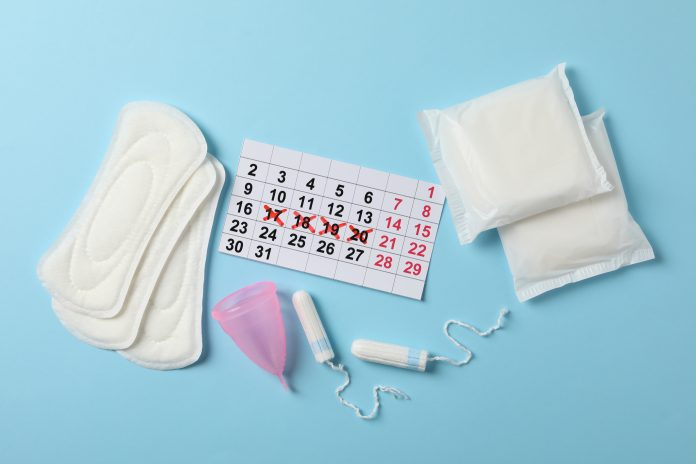Stress has been recognised by doctors as a cause for missing a period. Here we explore why these changes might occur as a result of the COVID-19 pandemic and what can be done to manage them
If you’ve noticed your menstrual cycle fluctuating recently, or you’ve been experiencing heightened period pains, you are not alone! It has been recognised by doctors that both stress and major changes to your normal routine can affect your cycle. These changes can vary from late periods to missed periods, longer cycles, and even dysmenorrhea (painful periods). Due to the COVID-19 crisis and the subsequent lockdown, many of us have experienced a complete upheaval in our expected ‘norm’. Whether you’re working from home, anxious about your job or your health, or a key worker rushed off your feet and working more hours than ever, your cycle may have been affected.
What can you expect from your cycle right now?
Apart from those lucky few whose cycles seem to run like clockwork, most of us will be no stranger to an unruly menstrual cycle. Your cycle is dependent on so many factors, from mental health to birth control choices, so it’s no wonder it can be unpredictable at the best of times.
During to COVID-19 crisis, however, more and more people are seeing changes in their periods including a shift in their normal cycle length, increased PMS, and sometimes no period showing up whatsoever. We’ve even noticed that Google search queries for the term ‘why are my periods irregular?’ is up by 70%. What does this all mean? It’s easy to jump to conclusions of pregnancy when you miss a period, but if you have no other reason to suspect this, the likelihood is, your cycle is undergoing big changes at the moment due to pandemic-related stress.
Sarah Toler, a doctor and science writer for Clue, gave some insight into the science behind stress and menstrual cycles: “excess release of cortisol [also known as the stress hormone] can suppress normal levels of reproductive hormones, potentially leading to abnormal ovulation, which can disrupt your cycle”, she said.
This is nothing new. In fact, it has already been proven in one study of female nurses that stress is intrinsically linked to anovulation (when ovulation doesn’t occur). What’s more, high levels of stress and anxiety can affect so much more than just your period. For example, your sleep pattern, sex drive, and blood pressure can all fluctuate during times of stress.
Unfortunately, most of us are encountering such times of stress as we speak — at least to some degree. While people were stockpiling toilet roll back in March, those who menstruate were already feeling anxious about how many sanitary pads and tampons to stock up on.
Not only has stress revolved around our actual periods, but our lives have been turned upside down. We’re either working more than ever before or furloughed and worrying about what post-lockdown life will mean for our careers. When we’re not worrying about work, we are feeling anxious about our health, and that of our loved ones. In short, there’s a lot on everyone’s mind right now, and it’s no wonder that it’s being reflected in our hormones.
How can you manage your cycle and your stress?
Before thinking about managing your menstrual cycle, it’s time to start thinking about managing your stress levels. Easier said than done, of course! But even small changes to your routine will make an important difference.
- Prioritise self-care: It is of the utmost importance that you factor in some ‘you time’. Try to take time to escape the pressures of feeling productive, being there for everyone else, while juggling the pressures of your job, family, and seemingly endless Zoom appointments!
- Exercise: Even if you’re busy, try to factor in a bit of exercise into your daily routine — even a small session can go a long way. Exercise has been proven time and time again to reduce stress and benefit your mental health, so whether that’s a jog in the park during your allotted exercise time or a yoga class in your living room, you’re bound to see the difference that it makes.
- Track your cycle: Your menstrual cycle may have become somewhat of a mystery to you, but it’s still worth trying to stay on top of it! If you input enough data into tracking apps such as Clue they should be able to adapt to your new cycle and notify you of any unexpected changes.
- Seek medical advice: Yes, this is easier said than done at the minute. But if you’re seriously concerned about your health and your stress levels it is always worth seeking professional advice. If you feel you need to talk to someone about the anxiety your experiencing due to Covid-19, get in touch with a therapist remotely, or contact a mental health charity such as Mind.
As we’ve been repeatedly told, these are ‘unprecedented times’, and as annoying as it is, an unprecedented cycle is to be expected. Remember: you’re not alone, and everyone’s minds and bodies are responding in different ways to the current situation. The best we can do for the moment is to look after ourselves, our loved ones, and prioritise our health.











